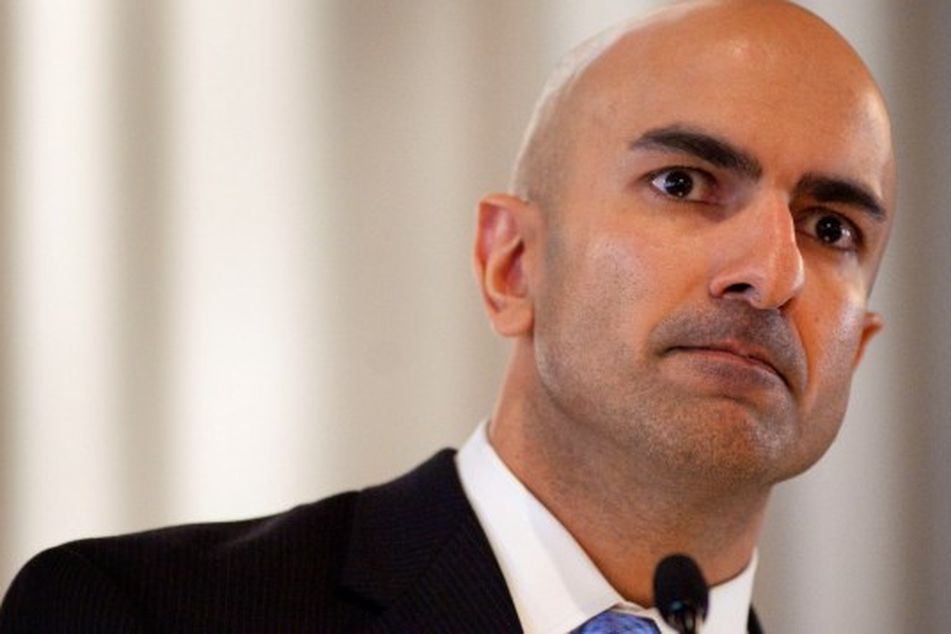<font color=red>Live from FPA</font>: U.S. economy still weighed down by debt: Pimco’s Kashkari

Progress has been made but more needs to be done, he tells FPA
Comparing the U.S. economy to an overweight heart-attack victim, Pimco’s Neel Kashkari said: “We managed to save the patient’s life, but he’s still on the gurney and he’s still overweight.”
In his keynote speech Monday at the Financial Planning Association’s annual conference in San Antonio, Mr. Kashkari gave advisers a cautious, critical and sometimes gloomy perspective on what lies ahead for the U.S. and global economies.
“Right now, we’re looking at private-sector deleveraging, high unemployment, re-regulation and restrained globalization,” he said. “Extraordinary uncertainty is part of the new normal and macro factors are totally overwhelming fundamental issues.”
Mr. Kashkari is a managing director and head of global equities at Pacific Investment Management Company LLC.
Even though government stimulus efforts did much to lessen the effects of the 2008 financial crisis, the U.S. remains in a “bubble economy” that will take time to resolve, he said.
“For 30 years, our economy added debt that led to added consumption that drove up GDP and, in turn, drove up asset prices,” Mr. Kashkari said. “The total debt in the U.S. economy went from 125% of GDP in 1950 to 250%, and then we had that heart attack in the financial system.”
There have been a few positive side effects of the financial shock of the past few years, he explained, including a decrease in debt at the consumer level. He pointed out that total household debt in America peaked at $12.1 trillion in 2008, climbing from $4.5 trillion in 1999.
It has since declined to $10.5 trillion and “the consumer is not done paying down debt,” he said.
Of course, consumer thrift means less spending, which does not help fuel an economic recovery.
“We’ve tried multiple things to get people to spend more, including cash for clunkers, which was probably the worst piece of policy in history,” he said, referring to the government’s $3 billion program in 2009 that was designed to encourage consumers to buy new vehicles.
Mr. Kashkari challenged the logic of imposing higher taxes on investments.
“We want people to save and invest, but we tax income and savings,” he said. “You could replace those kinds of taxes, dollar for dollar, with consumption-related taxes.”
He expects that the Federal Reserve’s monetary policy eventually will achieve the desired goal of modest inflation, a scenario he described as good for equities.
“If we were in a deflationary world, you would want to be in cash or debt because as prices around the world shrink, your pricing power will go up,” Mr. Kashkari said. “If we can engineer moderate inflation, you will want to be in equities. But if they let that inflation get away and it turns into high inflation, you want to be in gold, commodities and other hard assets.”
Mr. Kashkari also noted that Americans’ portfolios tend to be overly concentrated in domestic investments.
“Right now, the growth is largely coming from the emerging markets and commodity-producing countries, but we all have a home bias when it comes to investing, which is human nature,” he said. “It doesn’t mean you don’t invest in America at all; it means you should be positioned to invest globally. In our view where a company is headquartered is almost irrelevant.”
Along with his faith that the Fed will manage to create the right level of inflation, Mr. Kashkari also is optimistic that “two-thirds of the fiscal cliff [deadlines] will be extended for a year or so.”
However, the private sector hasn’t responded positively to short-term fixes and extensions.
“Washington is in a terrible pattern of one-year extension,” Mr. Kashkari said. “If you are the CEO of a company and you want to make a decision about a multiyear expansion or project, you can’t do it when tax policies are changing from one year to the next.”
Learn more about reprints and licensing for this article.








